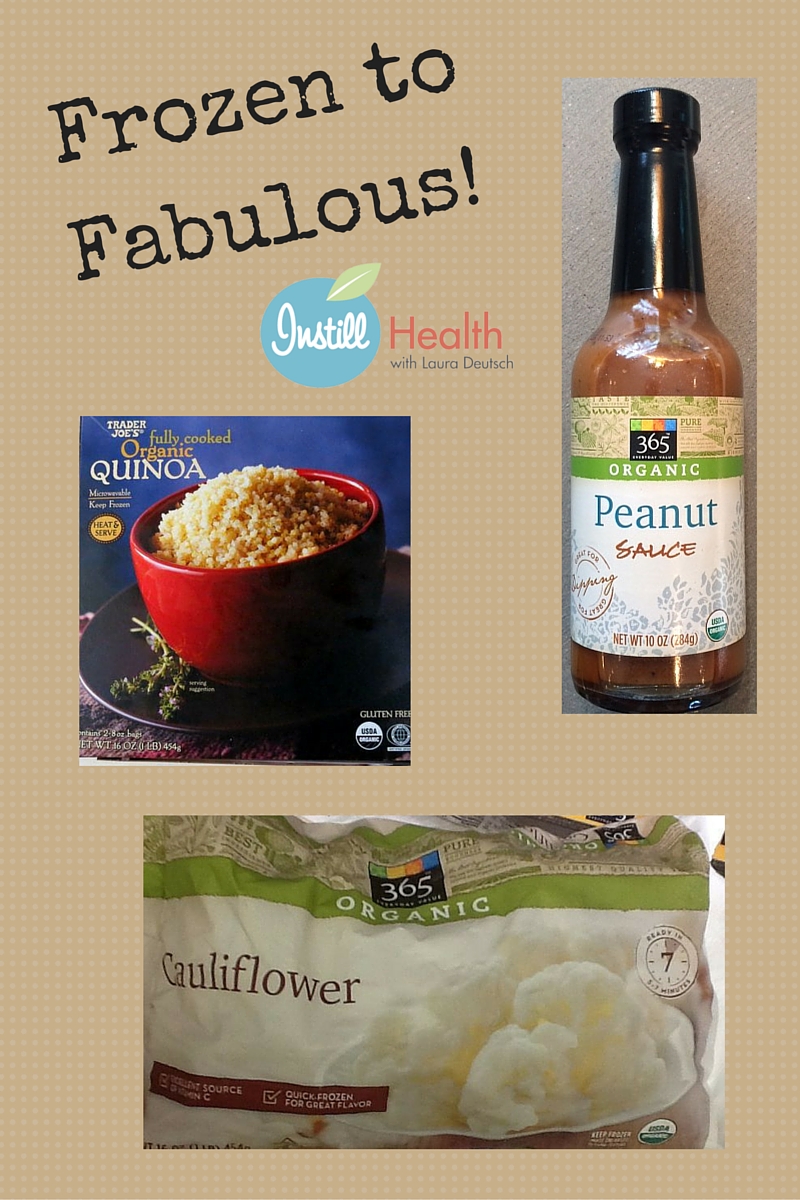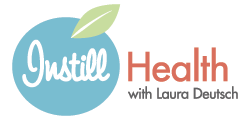
Until recently, I never gave frozen vegetables a second thought. For some reason they just didn’t seem as nutritious as those fresh, colorful, vibrant ones sitting in the produce section. But I’d heard that frozen veggies can be just as healthy as fresh ones, so there really wasn’t a valid reason NOT to consider including them in my diet.
Last week I was in Whole Foods in the freezer section and there they were – frozen ORGANIC broccoli, cauliflower, peas, spinach, and kale and I thought, how nice would it be to have these on hand for days when I’m flat out of fresh vegetables or am just not in the mood to deal with the cleaning and preparation?
It was at that moment I decided to find out once and for all if frozen veggies were just as nutritious as fresh ones so I pulled out my phone and googled “Are frozen vegetables healthy?”.
Here is what I found:
According to Web MD:
“Nutritionally speaking, frozen veggies are similar to — and sometimes better than — fresh ones. This makes sense, considering that these veggies are usually flash-frozen (which suspends their “aging” and nutrient losses) immediately after being harvested. Frozen veggies were often picked in the peak of their season, too.”
According to www.livestrong.com:
“Vegetables that are frozen right after harvesting may actually contain more of their original nutritional content than vegetables that endure cross-country transportation and a long period of storage before they reach your table.”
According to www.eatingwell.com:
“Fruits and vegetables chosen for freezing tend to be processed at their peak ripeness, a time when—as a general rule—they are most nutrient-packed. While the first step of freezing vegetables—blanching them in hot water or steam to kill bacteria and arrest the action of food-degrading enzymes—causes some water-soluble nutrients like vitamin C and the B vitamins to break down or leach out, the subsequent flash-freeze locks the vegetables in a relatively nutrient-rich state.”
According to www.heart.org:
“Frozen fruits and vegetables are picked at the peak of ripeness and then flash frozen to preserve optimal nutrition. They last for several months in the freezer and can be a very economical choice.”
A few interesting points from www.drweil.com:
“If you can afford it, buy frozen fruits and vegetables stamped USDA “U.S. Fancy,” the highest standard and the one most likely to deliver the most nutrients. As a rule, frozen fruits and vegetables are superior nutritionally to those that are canned because the canning process tends to result in nutrient loss.”
That was certainly enough proof for me, so I grabbed some frozen veggies and went along my way.
This past Saturday my fresh veggie selection at home was pretty much depleted. My food shopping day is Sunday, so I didn’t feel like running out to the store just to get some vegetables for Saturday, but I knew that I couldn’t go an entire day without eating any…
And then I remembered about the frozen ones in my freezer!
It was lunch time and I wanted to do right by my body. So I took out the frozen quinoa I buy from Trader Joe’s and the frozen organic cauliflower I found in Whole Foods. I microwaved the quinoa according to package directions. I spread the frozen cauliflower on a greased baking pan, brushed it with extra virgin olive oil, sprinkled it with sea salt, and roasted it at 400 degrees for 30 minutes. At the half way mark (so 15 minutes in) I gave the veggies a nice stir.
By the way, you will see that the instructions on the packages for cooking frozen vegetables only include microwaving or boiling. Don’t let that stop you from roasting. I tried it and they were delicious!
Next I placed the cauliflower on top of the quinoa, added some garbanzo beans for a little added protein, and topped it with some Whole Food’s Peanut Butter Sauce. BOOM! I had a healthy, veggie packed, nutrient dense, delicious hot lunch that was created from my freezer.
I am now a converted, enthusiastic frozen veggie fan! I even started using frozen kale and spinach in my smoothies.
But don’t get me wrong. My fridge is always still loaded with fresh produce, but I have to say that having the frozen ones to complement the fresh ones has really taken a burden off of me, knowing that i don’t HAVE to have fresh ones ready to go 24/7. If I run out for a day or 2, then I take a stroll to my freezer and I’m set. And if I just don’t feel like cleaning, prepping, and chopping, I happily check out what my freezer has to offer.
Vegetables are the healthiest foods out there. So make it as easy as possible to ensure they are an integral part of your daily diet. Load up on your fresh veggies but always have your frozen backups handy and you’ve created a fail-safe vegetable strategy in your home!
Do you like me on facebook? If not, you totally should! I post healthy and delicious recipes there that I DON’T post on my blog and I don’t want you to miss out!

